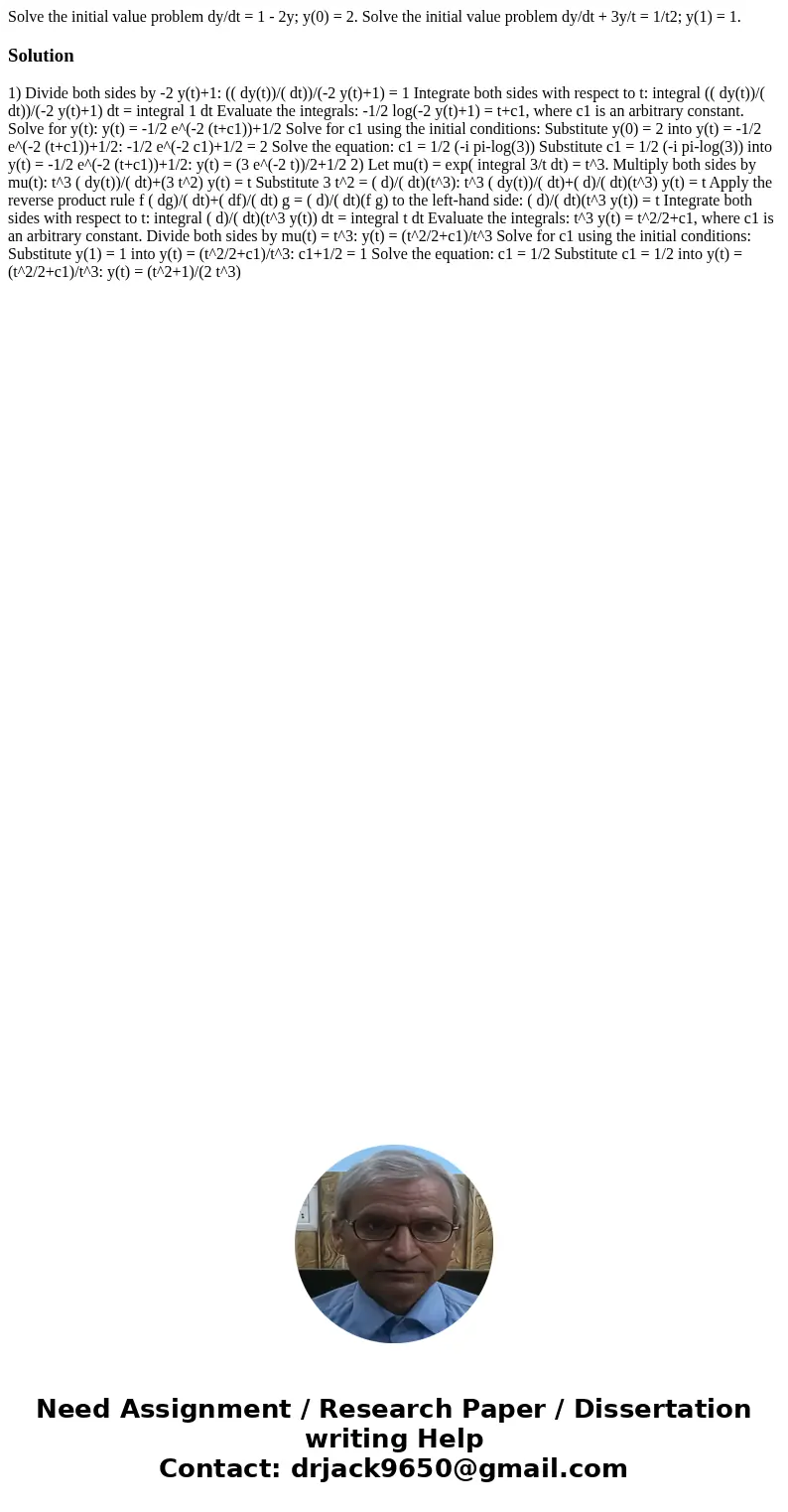Solve the initial value problem dydt 1 2y y0 2 Solve the
Solve the initial value problem dy/dt = 1 - 2y; y(0) = 2. Solve the initial value problem dy/dt + 3y/t = 1/t2; y(1) = 1.
Solution
1) Divide both sides by -2 y(t)+1: (( dy(t))/( dt))/(-2 y(t)+1) = 1 Integrate both sides with respect to t: integral (( dy(t))/( dt))/(-2 y(t)+1) dt = integral 1 dt Evaluate the integrals: -1/2 log(-2 y(t)+1) = t+c1, where c1 is an arbitrary constant. Solve for y(t): y(t) = -1/2 e^(-2 (t+c1))+1/2 Solve for c1 using the initial conditions: Substitute y(0) = 2 into y(t) = -1/2 e^(-2 (t+c1))+1/2: -1/2 e^(-2 c1)+1/2 = 2 Solve the equation: c1 = 1/2 (-i pi-log(3)) Substitute c1 = 1/2 (-i pi-log(3)) into y(t) = -1/2 e^(-2 (t+c1))+1/2: y(t) = (3 e^(-2 t))/2+1/2 2) Let mu(t) = exp( integral 3/t dt) = t^3. Multiply both sides by mu(t): t^3 ( dy(t))/( dt)+(3 t^2) y(t) = t Substitute 3 t^2 = ( d)/( dt)(t^3): t^3 ( dy(t))/( dt)+( d)/( dt)(t^3) y(t) = t Apply the reverse product rule f ( dg)/( dt)+( df)/( dt) g = ( d)/( dt)(f g) to the left-hand side: ( d)/( dt)(t^3 y(t)) = t Integrate both sides with respect to t: integral ( d)/( dt)(t^3 y(t)) dt = integral t dt Evaluate the integrals: t^3 y(t) = t^2/2+c1, where c1 is an arbitrary constant. Divide both sides by mu(t) = t^3: y(t) = (t^2/2+c1)/t^3 Solve for c1 using the initial conditions: Substitute y(1) = 1 into y(t) = (t^2/2+c1)/t^3: c1+1/2 = 1 Solve the equation: c1 = 1/2 Substitute c1 = 1/2 into y(t) = (t^2/2+c1)/t^3: y(t) = (t^2+1)/(2 t^3)
 Homework Sourse
Homework Sourse